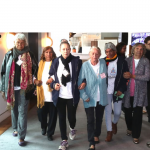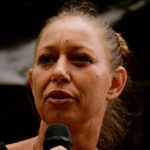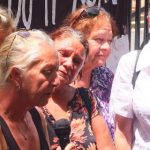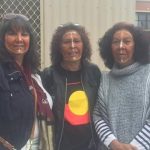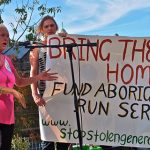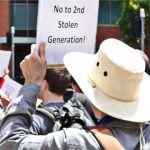A Royal Commission Into Child Removals Now: An Interview With NSPTRP’s Megan Krakouer
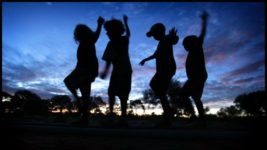
National Suicide Prevention and Trauma Recovery Project (NSPTRP) director Megan Krakouer has launched on online petition calling on prime minister Scott Morrison to prioritise a Royal Commission into Child Removals.
The Mineng woman has done so in response to a system that sees First Nations kids accounting for more than a third of all children in out-of-home care in Australia. This is despite the fact that Indigenous youth only make up around 6 percent of the general populace under the age of 17.
The over 23,000 Aboriginal and Torres Strait Islander children removed from their families right now is the highest number since colonisation began, according to Krakouer. And many refer to this disproportionate representation as the ongoing stolen generation.
But, the tendency of government services to forcibly remove children from their families is affecting the entire population, with the rate of one in 32 Australian kids coming to the attention of child protection authorities, being the highest in the world.
The trouble in WA
The 2020 Productivity Commission report outlines that on 30 June last year, there were 2,604 First Nations children in out-of-home care in Western Australia, which constituted 55 percent of all kids in state care in that jurisdiction.
And there are warranted fears that this situation could get worse, as currently the Children and Community Services Amendment Bill 2019 (WA) is before the WA Legislative Council, after having been passed by the lower house of state parliament just last week.
If enacted, a proposed change to section 81 of the Children and Community Services Act 2004 (WA) would allow for First Nations children to be removed from their homes with the consultation of only one family member. And as elsewhere in the country, this would translate as more removals.
The Secretariat of National Aboriginal and Islander Child Care (SNAICC) has made clear that while the PM’s recent Closing the Gap speech promised a new approach based on partnerships with First Nations people, the new amendment will actually disempower their communities.
Through a legal lens
Ms Krakouer is a lawyer with an understanding of Royal Commissions and the outcomes they can produce, as she spent two and a half years contributing to the Royal Commission into Institutional Responses to Child Sexual Abuse.
As director of the National Suicide Prevention and Trauma Recovery Project, her work brings Krakouer into firsthand contact with families that have seen their children forcibly removed. And the legal professional is well aware of the flaws in child protection services nationwide.
Sydney Criminal Lawyers spoke with Megan Krakouer about the outcomes she expects a Royal Commission into child removals would bring, her understanding that the Stolen Generation has never come to an end, and why the concerns over the WA amendment bill are justified.
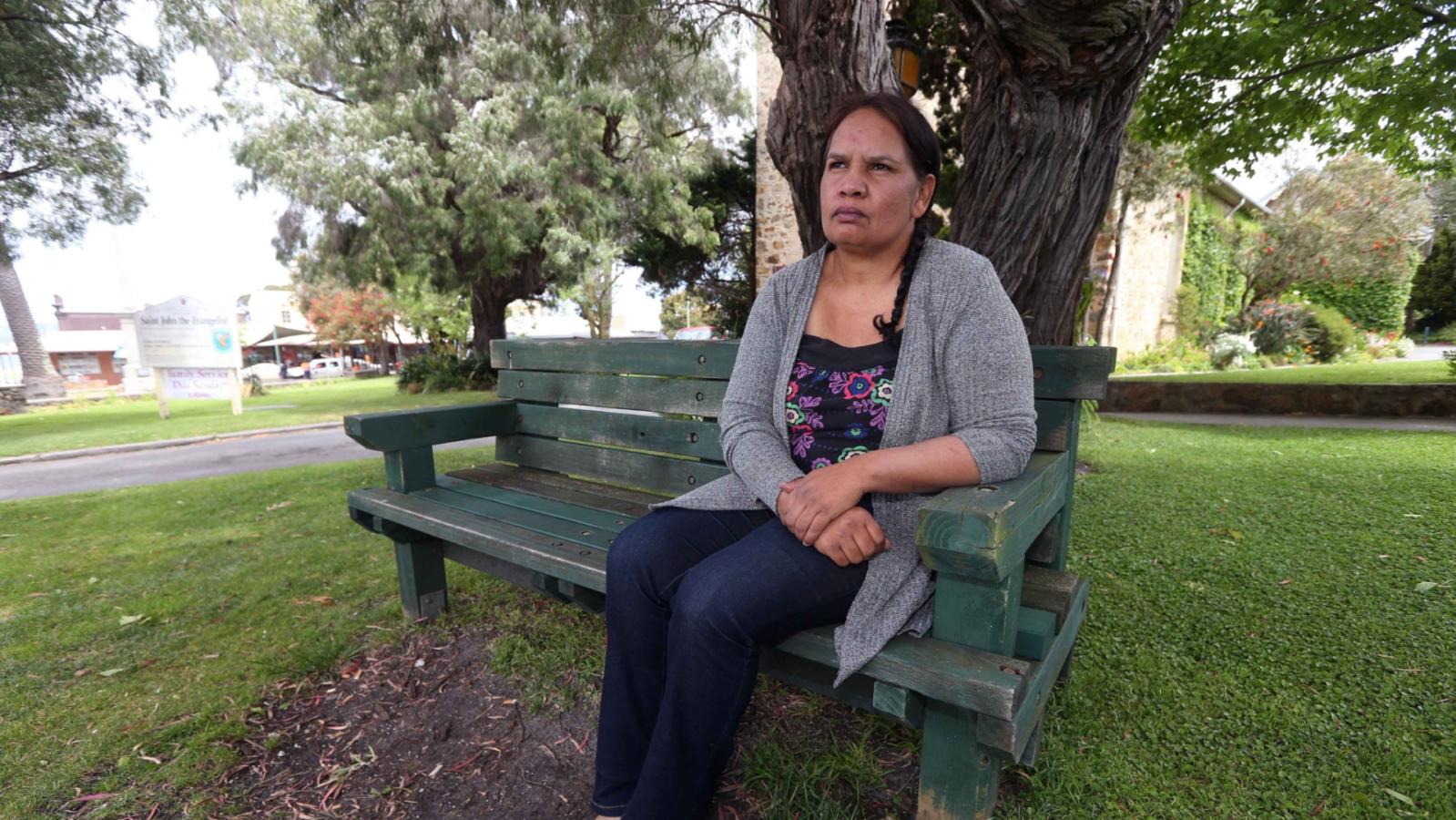
Firstly, you’ve pointed out that Australia has the world’s highest rate of children coming to the attention of child protection authorities.
Currently, there are more than 60,000 Australian children in out-of-home care, with more than a third of them – over 23,000 – being First Nations kids. Ms Krakouer, what does this tell us about the system of child protection in this country?
Child protection, a $6 billion plus industry, is more than just broken. It is a cascade of seismic failures that now guarantee escalating rates of child removals. This crisis is the most damning indictment of the Australian nation.
Despite knowledge of the increasing rates of the removal of Australian children – and of the even worse removal rates of First Nations children – there’s an effective silence around it, including by the media. And this, to quote colleague Gerry Georgatos, is due to “racism and classism”.
Australia has the highest rates of child removals in the world. But, when we look at Western Australia, the crisis of child removals is as horrific as it gets.
The peak body that represents First Nations families who have lost their children to child protection SNAICC, in its 2019 Family Matters report on removals of First Nations children, found that Western Australian child protection authorities are 18 times more likely to remove Indigenous children compared to non-Indigenous children.
That is disgusting and beyond words.
And you’re asserting that the situation with child removals in this country is only getting worse?
A decade ago, there were 30,000 Australian children removed, including less than 10,000 First Nations children.
At that time, my colleague Gerry Georgatos, who is a respected experiential researcher, estimated that by 2020 more than 50,000 Australian children would be removed into out-of-home care. He also estimated that by 2020 more than 20,000 First Nations children would be removed.
We can’t go past the point he made at the time, which was that social support services to vulnerable families were being reduced or defunded and that in the absence of these services, enabling powers were being legislated to remove more children and to place them elsewhere.
This explains how we went from 2,000 Indigenous children in out-of-home care in 1997 to 8,000 children removed by 2008 to now 23,000 Indigenous children removed.
We have to be alarmed by Gerry’s present estimations that in the next few years, 30,000 Indigenous children will be in out-of-home care. And by 2030, he estimates 100,000 Australian children will have been removed, of whom more than 50,000 will be Indigenous children.
How many more families and children will we hurt, damage, destroy?
So, this dire situation has led you to call for a Royal Commission into child removals. Would such an investigation be enough to make an impact?
Only 17 percent of the national child protection budget is directed to support services for families. This is demonstrative of the fact that social service supports have been eroded.
Today, systemically, child protection does not focus on supporting families, but as the statistics tell us, and as the budget tells us, they focus on what should be the last resort – not a first – removing children.
Only a Royal Commission can shine a light on that. Royal Commissions do work despite the myth that they’re a waste of money.
Our governments are dragged kicking and screaming to Royal Commissions – let us not forget this.
You’ve warned that planned changes to the WA Children and Community Services Act will exacerbate the situation in that state. What are the concerns around how this legislation will be amended?
There is justifiable hysteria about the amendment bill. But, these laws have been going on for 20 years in other parts of the country.
They want to find more options for placements, so they can remove more children. These laws enable powers to remove and place children, as when you increase the power to place you increase the potential for child removal traffic and that’s what it’s really all about.
The West Australian amendment bill is a copy of a recent Queensland bill that proposed more powers disguised as consultation with families through singular individuals.
In Queensland, this has led to more children being removed, instead of being supported with their families.
We must not focus or invest our energies in trying to defeat or strengthen a bill, as opposed to insisting on legislation that strengthens the provision of supports to vulnerable families and which obviously would lead to strengthening families and keeping more together.
Our governments are responsible for these bills. They must be held to account through a Royal Commission as to why we have a system in place that focuses disproportionately on removing children and finding placements for them, as opposed to supporting the majority of families to stay together.
I have firsthand experience of families that only needed to be supported and instead we’re betrayed by child protection authorities.
This bill represents more powers under the guise of “placements” to remove more children, rather than to support them in the first instance.
For me, in working with families that others would consider too hard to support, I have helped them to become healthier and stronger. And I want the Royal Commission on behalf of the devastated families – their sea of grief.
It has been said that what’s happening to Indigenous children being removed today is the Second Stolen Generation.
But, I say in the 100 years since the Stolen Generation began we have now had five waves of generations of children removed. And this fifth wave of removals that we’re living today is the highest number of Indigenous children ever removed.
The proposed new powers in WA will affect not only Indigenous children, but also all of Australia’s children who come to the attention of child protection authorities.
The amendments target First Nations children foremost, but they also target culturally and linguistic diverse migrant children.
What effects are the high rates of child removals having upon First Nations communities and individuals?
I can speak firsthand again. I’m watching more of our people suffer than ever before, or at least in the time that I’ve been alive, nearly half a century.
I’m watching families be totally destroyed and devastated, of whom members – parents, brothers and sisters – take their lives.
I watch families whose meaning is lost, and they live their lives – whatever is left of them – without happiness or hope. Many finish up homeless and many, many more incarcerated.
Our service is contacted daily by families crying out to be reunited with their children, as well as by children who have fled out-of-home care – that is foster care or group homes – and who have finished up homeless.
There are children who are wards of the state, who instead of being in the so-called placements are homeless on our streets – children younger than 10 years of age.
We work with some to house them, to support them and to love them.
The nation, your readers, should read the story published in The West Australian newspaper on 16 December 2019. It’s the only time in Australian history that child protection has given permission for an out-of-home care child – aged 16 – to tell her story.
And lastly, Ms Krakouer, you’re calling for a Royal Commission into child removals. What sort of outcomes do you foresee such an inquiry would result in?
We need departments of social services to replace the departments of child protection.
Child protection appears to be some type of policing entity, rather than a service of social workers and counsellors, who should be supporting families.
We want to see the majority of funding to child protection authorities – say, 60 to 70 percent of the $6 billion plus – redirected to fund family support services.
This Royal Commission is needed for all Australian children, and also to disprove the stereotype and the racial bias that perceives all the Indigenous families of removed children as dysfunctional.
Instead, the blame for the high removal rates of First Nations children, the children of migrant born families and all families, should be laid squarely with child protection services and our governments that have allowed and enabled this.
It is my view that until a Royal Commission can hear the thousands of untold stories of children failed and their families, everything will continue to get worse.
It would also hear from social workers in and outside of child protection, from psychologists and counsellors working at the coalface, as did the Royal Commission into Institutional Responses to Child Sexual Abuse.
For two and a half years, I contributed to the Royal Commission on Institutional Responses to Child Sexual Abuse through the Knowmore Legal Centre.
In my work on that Royal Commission, I visited 27 adult prisons in three states, and I travelled to many towns and communities.
When the stories of the untold were heard, difference – that was not possible before – became possible.
Without a Royal Commission into child removals, the ignorance that pervades our governments will continue to destroy lives.


